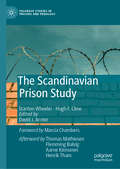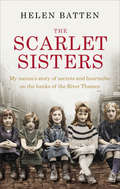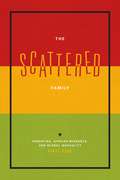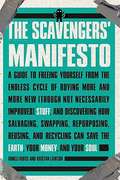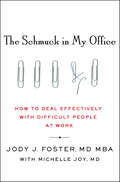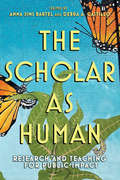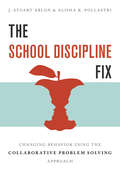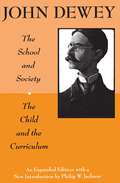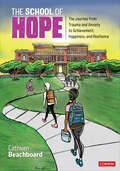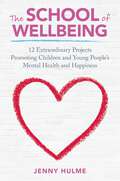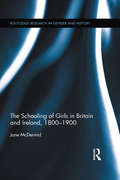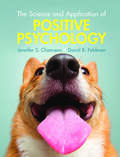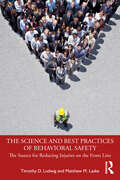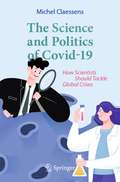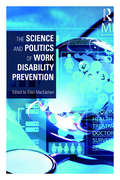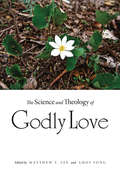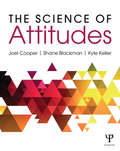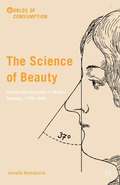- Table View
- List View
The Scandal of White Complicity in US Hyper-incarceration
by Alex Mikulich Laurie Cassidy Margaret PfeilThe Scandal of White Complicity and US Hyper-incarceration is a groundbreaking exploration of the moral role of white people in the disproportionate incarceration of African-Americans and Latinos in the United States.
The Scandinavian Prison Study (Palgrave Studies in Prisons and Penology)
by Stanton Wheeler Hugh F. ClineThis book presents the formerly-unpublished manuscript by Wheeler and Cline detailing the landmark, comparative prisons study they conducted in the 1960s which examined fifteen Scandinavian prisons and nearly 2000 inmates across four Nordic countries. At the time, it was the largest comparative study of prisons and inmate behavior ever undertaken and despite 15 years of analysis and write-up it was never published but it influenced many other important prison studies that followed. This book engages with the functionalist perspectives that were widespread in the 1960s, and tries to answer some of the classical questions of prison sociology such as how prisoners adapt to imprisonment and the degree to which prisoner adaptations can be attributed to characteristics of prisoners and prisons. It examines the nature and structure of prisons, the effect of that structure on individual prisoners and the other factors that may influence the way that they respond to confinement. It also includes discussion about the prisoners’ considerations of justice and fairness and a explanation of the study design and data which was highly unique at the time. The Scandinavian Prison Study brings Wheeler and Cline's pioneering work into the present context with a preface and an introduction which discuss the questions and claims raised in the book still relevant to this day.
The Scarlet Sisters: My nanna’s story of secrets and heartache on the banks of the River Thames
by Helen Batten‘Oh my goodness – another girl Mrs Swain!’ Clara’s normal iron composure broke and she screamed, ‘No! That’s not the bloody deal!’And that is how my nanna, Bertha Swain, entered the world.When Helen Batten’s marriage breaks down, she starts on a journey of discovery into her family’s past and the mysteries surrounding her enigmatic nanna’s early life. What she unearths is a tale of five feisty red heads struggling to climb out of poverty and find love through two world wars. It’s a story full of surprises and scandal – a death in a workhouse, a son kept in a box, a shameful war record, a clandestine marriage and children taken far too soon. It’s as if there is a family curse. But Helen also finds love, resilience and hope – crazy wagers, late night Charlestons and stolen kisses. As she unravels the story of Nanna and her scarlet sisters, Helen starts to break the spell of the past, and sees a way she might herself find love again.
The Scattered Family: Parenting, African Migrants, and Global Inequality
by Cati CoeToday’s unprecedented migration of people around the globe in search of work has had a widespread and troubling result: the separation of families. In The Scattered Family, Cati Coe offers a sophisticated examination of this phenomenon among Ghanaians living in Ghana and abroad. Challenging oversimplified concepts of globalization as a wholly unchecked force, she details the diverse and creative ways Ghanaian families have adapted long-standing familial practices to a contemporary, global setting. Drawing on ethnographic and archival research, Coe uncovers a rich and dynamic set of familial concepts, habits, relationships, and expectations—what she calls repertoires—that have developed over time, through previous encounters with global capitalism. Separated immigrant families, she demonstrates, use these repertoires to help themselves navigate immigration law, the lack of child care, and a host of other problems, as well as to help raise children and maintain relationships the best way they know how. Examining this complex interplay between the local and global, Coe ultimately argues for a rethinking of what family itself means.
The Scavengers' Manifesto
by Anneli Rufus Kristan LawsonDestined to become the bible for a bold new subculture of eco-minded people who are creating a lifestyle out of recycling, reusing, and repurposing rather than buying new. An exciting new movement is afoot that brings together environmentalists, anticonsumerists, do-it-yourselfers, bargain-hunters, and treasure-seekers of all stripes. You can see it in the enormous popularity of many websites: millions of Americans are breaking free from the want-get-discard cycle by which we are currently producing approximately 245 million tons of waste every day (that's 4. 5 pounds per person, per day!). In The Scavengers' Manifesto, Anneli Rufus and Kristan Lawson invite readers to discover one of the most gratifying (and inexpensive) ways there is to go green. Whether it's refurbishing a discarded wooden door into a dining-room table; finding a bicycle on freecycle. org; or giving a neighbor who just had a baby that cute never-used teddy bear your child didn't bond with, in this book Rufus and Lawson chart the history of scavenging and the world-changing environmental and spiritual implications of "Scavenomics," and offer readers a framework for adopting scavenging as a philosophy and a way of life. .
The Schmuck in My Office: How to Deal Effectively with Difficult People at Work
by Jody J. Foster Michelle Joy"This is a timely must-read for managers and anyone who has ever had to deal with a difficult coworker; it addresses a ubiquitous problem in a proactive, positive manner that should get the desired results." - Publishers Weekly Everyone has a “schmuck” in their office---a difficult, disruptive person who upsets the workplace, confuses coworkers, and causes concern. It’s hard to understand why schmucks act the way they do, but one thing is certain---they seem to come in all shapes and sizes. . . . - Narcissus---the condescending attention-seeker who carelessly steps on everyone’s toes - The Flytrap---the bringer of chaos whose emotional instability causes an office maelstrom - The Bean Counter---the orderly perfectionist who never gives up control, even when it’s full-steam-ahead to disaster - The Robot---the unreadable stone wall who just can’t connect Sound like anyone you know? These are just a few of the more prominent types of difficult people at work. In The Schmuck in My Office, Dr. Jody Foster explains the entire spectrum of people we may think of as schmucks, how they can decrease productivity, destroy teams, and generally make everyone else unhappy. Along with nailing down the various types, she looks at personality traits and explains how dysfunctional interactions among coworkers can lead to workplace fiascos. She helps readers understand schmucks as people, figure out how to work with them, and ultimately solve workplace problems. She also makes readers consider the most difficult thing of all: despite where your finger may be pointing, sometimes you are the “schmuck”! Let Dr. Foster teach you how to make your workplace a happier and more productive one.
The Scholar Denied
by Aldon MorrisIn this groundbreaking book, Aldon D. Morris's ambition is truly monumental: to help rewrite the history of sociology and to acknowledge the primacy of W. E. B. Du Bois's work in the founding of the discipline. Calling into question the prevailing narrative of how sociology developed, Morris, a major scholar of social movements, probes the way in which the history of the discipline has traditionally given credit to Robert E. Park at the University of Chicago, who worked with the conservative black leader Booker T. Washington to render Du Bois invisible. Morris uncovers the seminal theoretical work of Du Bois in developing a "scientific" sociology through a variety of methodologies and examines how the leading scholars of the day disparaged and ignored Du Bois's work.The Scholar Denied is based on extensive, rigorous primary source research; the book is the result of a decade of research, writing, and revision. In exposing the economic and political factors that marginalized the contributions of Du Bois and enabled Park and his colleagues to be recognized as the "fathers" of the discipline, Morris delivers a wholly new narrative of American intellectual and social history that places one of America's key intellectuals, W. E. B. Du Bois, at its center.The Scholar Denied is a must-read for anyone interested in American history, racial inequality, and the academy. In challenging our understanding of the past, the book promises to engender debate and discussion.
The Scholar as Human: Research and Teaching for Public Impact
The Scholar as Human brings together faculty from a wide range of disciplines—history; art; Africana, American, and Latinx studies; literature, law, performance and media arts, development sociology, anthropology, and Science and Technology Studies—to focus on how scholarship is informed, enlivened, deepened, and made more meaningful by each scholar's sense of identity, purpose, and place in the world. Designed to help model new paths for publicly-engaged humanities, the contributions to this groundbreaking volume are guided by one overarching question: How can scholars practice a more human scholarship?Recognizing that colleges and universities must be more responsive to the needs of both their students and surrounding communities, the essays in The Scholar as Human carve out new space for public scholars and practitioners whose rigor and passion are equally important forces in their work. Challenging the approach to research and teaching of earlier generations that valorized disinterestedness, each contributor here demonstrates how they have energized their own scholarship and its reception among their students and in the wider world through a deeper engagement with their own life stories and humanity.Contributors: Anna Sims Bartel, Debra A. Castillo, Ella Diaz, Carolina Osorio Gil, Christine Henseler, Caitlin Kane, Shawn McDaniel, A. T. Miller, Scott J. Peters, Bobby J. Smith II, José Ragas, Riché Richardson, Gerald Torres, Matthew Velasco, Sara WarnerThanks to generous funding from Cornell University, the ebook editions of this book are available as Open Access volumes from Cornell Open (cornellopen.org) and other repositories.
The School Discipline Fix: Changing Behavior Using The Collaborative Problem Solving Approach
by J. Stuart Ablon Alisha R. PollastriA complete guide to a paradigm-shifting model of school discipline. Disruptive students need problem-solving skills, not punishment. Traditional school discipline is ineffective and often damaging, relying heavily on punishments and motivational procedures aimed at giving students the incentive to behave better. There is a better way. Dr. Ablon and his co-author Dr. Pollastri have been working with schools throughout the world to refine the Collaborative Problem-Solving (CPS) approach, creating a step-by-step program for educators based on the recognition—from research in neuroscience—that challenging classroom behaviors are due to a deficit of skill, not will. This book provides everything needed to implement the program, including reproducible assessment tools to pinpoint skill deficits in areas like frustration tolerance and flexibility that are at the root of students' challenging behaviors. Whether you are a teacher, counselor, coach, or administrator, the CPS approach to school discipline will provide you with a new mindset, an assessment process, and an effective intervention plan for each of your challenging students. You will walk away with strategies that are immediately actionable with the students in your life.
The School I'd Like: Children and Young People's Reflections on an Education for the 21st Century
by Catherine Burke Ian Grosvenor‘Wonderfully illuminated by children's essays, stories, poems, pictures and plans, this ground-breaking book offers a unique snapshot of the perceptions of today's school pupils’. -French bookstore Lavoisier www.lavoisier.fr In 2001, The Guardian launched a ground-breaking competition called ‘The School I'd Like’, in which young people were asked to imagine their ideal school. This vibrant and compelling book presents material drawn from that competition, offering a unique snapshot of perceptions of schools by those who matter most - the pupils. In 2011, The Guardian re-launched the competition and this updated 2nd edition reflects upon the next generation of reflections and summarises, through the children’s insightful commentary, what has changed over the intervening decade. The book is wonderfully illustrated by children's essays, stories, poems, pictures and plans. Placing their views in the centre of the debate, it provides an evaluation of the democratic processes involved in teaching and learning by: • identifying consistencies in children's expressions of how they wish to learn • highlighting particular sites of 'disease' in the education system today • illustrating how the built environment is experienced by today's children • posing questions about the reconstruction of teaching and learning for the twenty-first century. The School I’d Like: Revisited offers a powerful perspective on school reform and is essential reading for all those involved in education and childhood studies, including teachers, advisors, policy-makers, academics, and anyone who believes that children's voices should not be ignored.
The School and Society, and The Child and the Curriculum
by John DeweyAmerica's arch-philosopher of education wrote these two short pieces out of his experience with Chicago's laboratory school which he started in 1896. Dewey's first piece (1915) argues for making the school into a microsociety of the larger one, while in the second (1902) he seeks a curriculum acting as a kind of program for teachers to follow. Teachers can then guide children toward enough self-confidence to be assertive and exercise their capacities. Cited in Books for College Libraries, 3rd ed. Annotation c. Book News, Inc., Portland, OR (booknews.com)
The School of Hope: The Journey From Trauma and Anxiety to Achievement, Happiness, and Resilience
by Cathleen BeachboardDiscover how to improve achievement, happiness, and resilience using the science of hope The current mental health crisis is driving many teachers to leave the profession while students struggle with engagement and anxiety. Trauma-informed coping mechanisms are helpful, but this book goes a step further by incorporating much-needed but often-missing support to help learners feel hopeful and provide educators with resources to care for themselves. Based on research around the psychological science of hope, this guidebook provides strategies educators and school leaders can use daily to help students feel secure, build relationships, and improve academic outcomes. Included are practices and interventions that can be woven into classrooms and schools to foster mental wellness and happiness using Classroom materials, tools, and reproducibles Scientific resources to quickly assess and monitor hope Simple plans of action to improve hope, engagement, and motivation Vignettes from classrooms and the author’s own experiences with children who have experienced extreme trauma Backed by the latest research, The School of Hope will encourage higher academic attainment and equity, inspiring a sense of deeper fulfillment for both students and educators.
The School of Hope: The Journey From Trauma and Anxiety to Achievement, Happiness, and Resilience
by Cathleen BeachboardDiscover how to improve achievement, happiness, and resilience using the science of hope The current mental health crisis is driving many teachers to leave the profession while students struggle with engagement and anxiety. Trauma-informed coping mechanisms are helpful, but this book goes a step further by incorporating much-needed but often-missing support to help learners feel hopeful and provide educators with resources to care for themselves. Based on research around the psychological science of hope, this guidebook provides strategies educators and school leaders can use daily to help students feel secure, build relationships, and improve academic outcomes. Included are practices and interventions that can be woven into classrooms and schools to foster mental wellness and happiness using Classroom materials, tools, and reproducibles Scientific resources to quickly assess and monitor hope Simple plans of action to improve hope, engagement, and motivation Vignettes from classrooms and the author’s own experiences with children who have experienced extreme trauma Backed by the latest research, The School of Hope will encourage higher academic attainment and equity, inspiring a sense of deeper fulfillment for both students and educators.
The School of Wellbeing: 12 Extraordinary Projects Promoting Children and Young People's Mental Health and Happiness
by Jenny Hulme Jane Asher Jane Powell Asad Ahmad Gok Wan Kate Griggs Nicky Cox Professor Tanya Byron Rebecca Root Suzy GreavesAs rates of depression, anxiety, self-harm and eating disorders are on the up among young people, how can schools provide appropriate information and support for the young people in their classrooms? How can they bridge the gap between what they know matters - the impact of these issues on learning and life-long health - and the mounting day-to-day priorities and pressures of school life? This book provides unique insight into 12 projects that are helping to answer these questions and supporting teachers to make mental health and emotional wellbeing a key player in the school day. With a mix of longer-term initiatives and simple strategies that schools can put in place immediately, it explores mentoring and mindfulness, social action and sport, Lego play and poetry, the power of parents and the role of PSHE. It describes how these projects work practically and shares the impact they are having, increasing resilience and raising the aspirations and emotional wellbeing of the whole school community. As well as showcasing ideas that are making a difference, the book meets with the education leaders and charities behind the initiatives (including Place2Be, Step up to Serve, Kidscape, Mosaic, Diversity Role Models, Beat, Achievement for All and others) who offer advice and signpost useful information to support readers in getting these ideas off the ground in their schools. This book is a source of inspiration for headteachers, senior leadership teams, pastoral care teams, school counsellors and psychologists.
The Schooled Society: The Educational Transformation of Global Culture
by David P. BakerOnly 150 years ago, the majority of the world's population was largely illiterate. Today, not only do most people over fifteen have basic reading and writing skills, but 20 percent of the population attends some form of higher education. What are the effects of such radical, large-scale change? David Baker argues that the education revolution has transformed our world into a schooled society—that is, a society that is actively created and defined by education. Drawing on neo-institutionalism, The Schooled Society shows how mass education interjects itself and its ideologies into culture at large: from the dynamics of social mobility, to how we measure intelligence, to the values we promote. The proposition that education is a primary rather than a "reactive" institution is then tested by examining the degree to which education has influenced other large-scale social forces, such as the economy, politics, and religion. Rich, groundbreaking, and globally-oriented, The Schooled Society sheds light on how mass education has dramatically altered the face of society and human life.
The Schooling of Girls in Britain and Ireland, 1800- 1900 (Routledge Research in Gender and History)
by Jane McDermidThis book compares the formal education of the majority of girls in Britain and Ireland in the nineteenth century. Previous books about ‘Britain’ invariably focus on England, and such ‘British’ studies tend not to include Ireland despite its incorporation into the Union in 1801. The Schooling of Girls in Britain and Ireland, 1800-1900 presents a comparative synthesis of the schooling of working and middle-class girls in the Victorian period, with the emphasis on the interaction of gender, social class, religion and nationality across the UK. It reveals similarities as well as differences between both the social classes and the constituent parts of the Union, including strikingly similar concerns about whether working-class girls could fulfill their domestic responsibilities. What they had in common with middle-class girls was that they were to be educated for the good of others. This study shows how middle-class women used educational reform to carve a public role for themselves on the basis of a domesticated life for their lower class ‘sisters’, confirming that Victorian feminism was both empowering and constraining by reinforcing conventional gender stereotypes.
The Science Glass Ceiling: Academic Women Scientist and the Struggle to Succeed
by Sue V. RosserIn The Science Glass Ceiling, Sue Rosser chronicles the plight of women faculty across the country. Noting difficulties, double standards, and backlash that they routinely face. Rosser interviewed some of the country's best female scientists about their research, love of science, and routing barriers faced. She offers suggestions and solutions for changing the science and technology culture at universities in order to establish a more level playing field. As the first woman Dean at a science/technical school, Rosser offers realistic solutions from an insider's perspective.
The Science and Application of Positive Psychology
by David B. Feldman Jennifer S. CheavensPositive psychology tackles the big questions: What does it mean to live a 'good life'? What helps people to flourish and access their optimal potential? And how can we increase our capacities for joy, meaning, and hope? This engaging textbook emphasizes the science of positive psychology - students don't simply learn about positive psychology in the abstract, but instead are exposed to the fascinating research that supports its conclusions.Bridging theory and practice, this textbook connects up-to-date research with real-world examples and guides students to apply evidence-based practices in their own lives. Its comprehensive coverage includes major new topics, such as spirituality, therapeutic interventions, mindfulness, and positive relationships. Featured pedagogy includes 'Are You Sure about That?' boxes presenting methodological and statistical principles in context, and 'Practice Positive Psychology' activities to extend student learning, while online resources include lecture slides, a test bank, and an instructor manual.
The Science and Best Practices of Behavioral Safety: The Source for Reducing Injuries on the Front Line
by Timothy D. Ludwig Matthew M. LaskeThis book presents the scientific principles and real-world best practices of behavioral safety, one of the most mature and impactful applications of behavioral science to reduce injuries in industrial workplaces. The authors review the core principles of behavioral science and their application to modern safety processes. Process components are discussed in detail, including risk analysis and pinpointing, direct observation, performance feedback, reinforcing engagement, trending and functional analysis, behavior change interventions, and program evaluation. Discussions are complemented by industry best-practice case studies from world-class behavioral safety programs accredited by the Cambridge Center for Behavioral Studies (CCBS), which provide compelling evidence of the effectiveness of these behavioral science principles in reducing injury. The Science and Best Practices of Behavioral Safety is essential reading for safety professionals, process safety engineers, and leaders in companies who have implemented, or are considering implementing, behavioral safety; or as an aid to learning more about the scientific background behind effective and practical safety practices. Researchers, expert consultants, and students who are already familiar with the practice will also find the book a valuable source to further develop their expertise.
The Science and Politics of Covid-19: How Scientists Should Tackle Global Crises
by Michel ClaessensThis book is a fresh and readable account of the Covid-19 pandemic and how scientists and medical doctors are helping governments to manage the crisis. The book contains interviews and exchanges with dozens of scientists, doctors, experts, government representatives, and journalists. Why do some of the most scientifically advanced countries have the highest Covid-19 mortality? During the pandemic, the research community has been at the heart of—and actor in—a global scandal. Why has science failed? With the help of numerous testimonies from China, France, the UK and the USA in particular, the book provides an insider’s view on this major crisis. Although the governments of these countries based their Covid-19 strategy on science, scientists failed to have a decisive influence on decision-makers—except in China—, which created genuine “time bombs.” The accelerated development of vaccines does not erase past months’ errors. The crisis led to the development of “science politics” at an unprecedented rate. More worryingly, experts themselves acknowledge that they did not rise to the challenge. Covid-19 also highlighted the weakness of democratic regimes and the power of technocapitalism. Countries pulled down their blinds, locked their doors, and promoted national approaches rather than international cooperation. The author proposes to set up an international framework on health risk to co-construct decision-making. He advocates political distancing in order to put the basics first: develop science, fight ignorance.
The Science and Politics of Work Disability Prevention
by Ellen MacEachenThe rising cost of illness and disability benefits are one of today’s biggest social and labour market challenges. The promise of activation-oriented work disability policies was labour market engagement for all people, regardless of illness, injury or impairment. However, the reality has been more complex. The Science and Politics of Work Disability Policy addresses social and political economic contexts driving state work disability reform in 13 countries. In this first attempt to explain the history and future of work disability policy, this book asks new questions about work disability policy design, focus, and effects. It details how work disability policies have evolved with jurisdictions, why these take their current shape, and where they are heading. The well positioned authors draw on their insider knowledge and expertise in law, medicine, and social science to provide detailed case studies of their jurisdictions. This pathbreaking volume will be of interest to social security system policy makers, scholars, and students in the health and social sciences.
The Science and Theology of Godly Love
by Amos Yong Matthew LeeArguing that there are ways to move beyond the limitations of methodological atheism without compromising scientific objectivity, the essays gathered in The Science and Theology of Godly Love explore the potential for collaboration between social science and theology. They do so within the context of the interdisciplinary study of Godly Love, which examines the perceived experience of loving God, being loved by God, and thereby being motivated to engage in selfless service to others. This volume serves as an introduction to and a call for further research in this new field of study, offering ten methodological perspectives on the study of Godly Love written by leading social scientists and theologians. Drawing on the work of Douglas Porpora and others, the contributors contend that agnosticism is the appropriate methodological stance when religious experience is under the microscope. Godly Love does not force a theistic explanation on data, instead these essays show that it sensitizes researchers so that they can take seriously the faith and beliefs of those they study without the assumption that these theologies represent an incontestable truth.
The Science of Adolescent Risk-Taking: Workshop Report
by Institute of Medicine National Research Council of the National AcademiesAdolescence is a time when youth make decisions, both good and bad, that have consequences for the rest of their lives. Some of these decisions put them at risk of lifelong health problems, injury, or death. The Institute of Medicine held three public workshops between 2008 and 2009 to provide a venue for researchers, health care providers, and community leaders to discuss strategies to improve adolescent health.
The Science of Attitudes
by Joel Cooper Kyle Keller Shane BlackmanThe Science of Attitudes is the first book to integrate classic and modern research in the field of attitudes at a scholarly level. Designed primarily for advanced undergraduates and graduate students, the presentation of research will also be useful for current scholars in all disciplines who are interested in how attitudes are formed and changed. The treatment of attitudes is both thorough and unique, taking a historical approach while simultaneously highlighting contemporary views and controversies. The book traces attitudes research from the inception of scientific study following World War II to the issues and methods of research that are prominent features of today's research. Researchers in the field of attitudes will be particularly interested in classic and modern research on the organization, structure, strength and function of attitudes. Researchers in the field of persuasion will be particularly interested in work on attitude change focusing on propositional and associative learning, metacognition and dynamic theories of dissonance, balance and reactance. The book is designed to present the integration of the properties of the attitude with the dynamic considerations of attitude change. The Science of Attitudes is also the first book on attitudes to devote entire chapters to work on implicit measurements, resistance to persuasion, and social neuroscience.
The Science of Beauty
by Annelie RamsbrockWhat did the cosmetics practices of middle-class women in the nineteenth century have in common with the repair of men's bodies mutilated in war? What did the New Woman of the Weimar years have to do with the field of social medicine that emerged in the same period? They were all part of a conversation about the cosmetic modification of bodies, a debate shaped by scientific knowledge and normative social models. Conceived as a cultural history, this book examines the history of artificially created beauty in Germany from the late Enlightenment to the early days of National Socialist rule.

